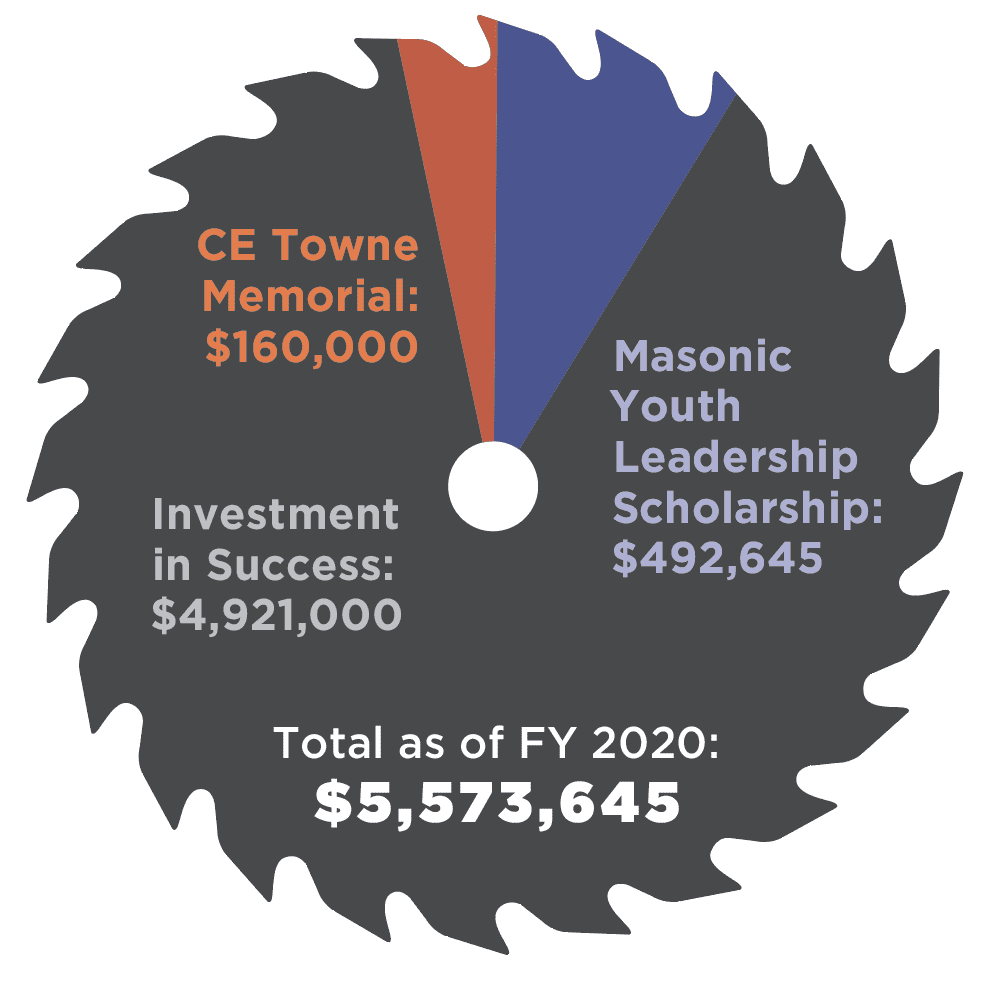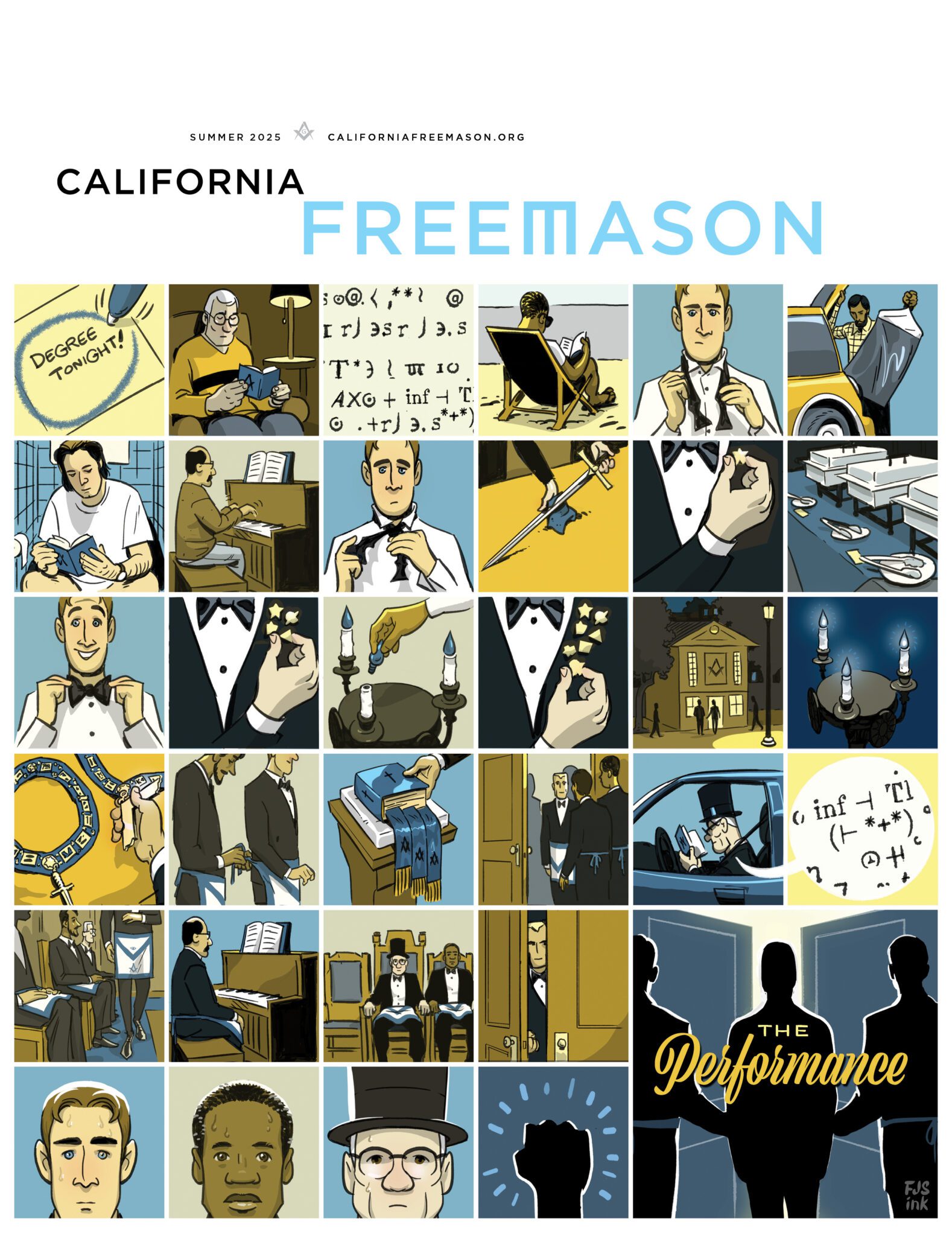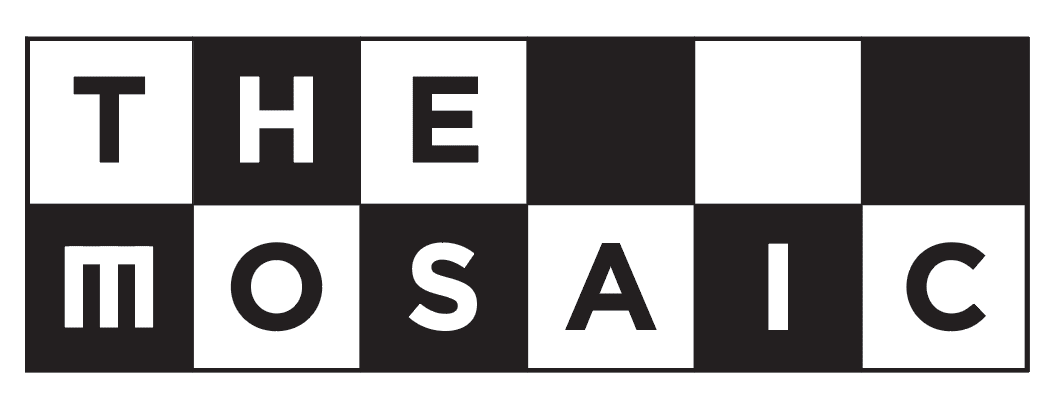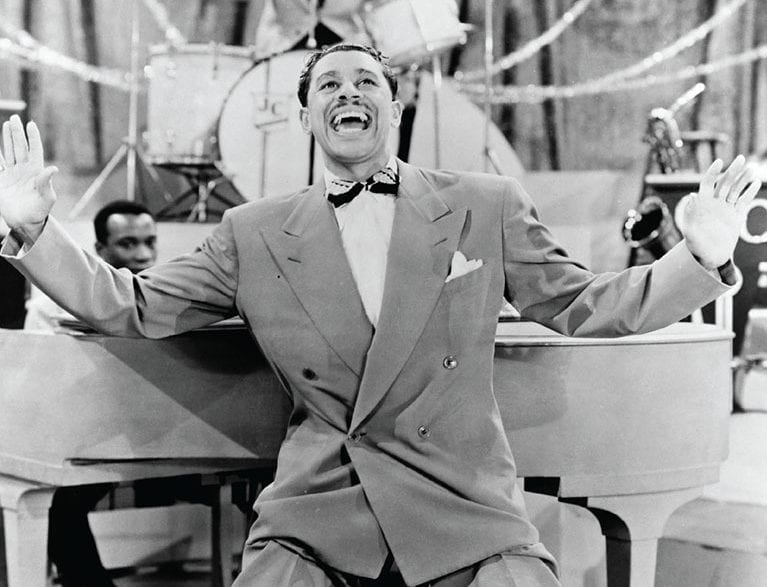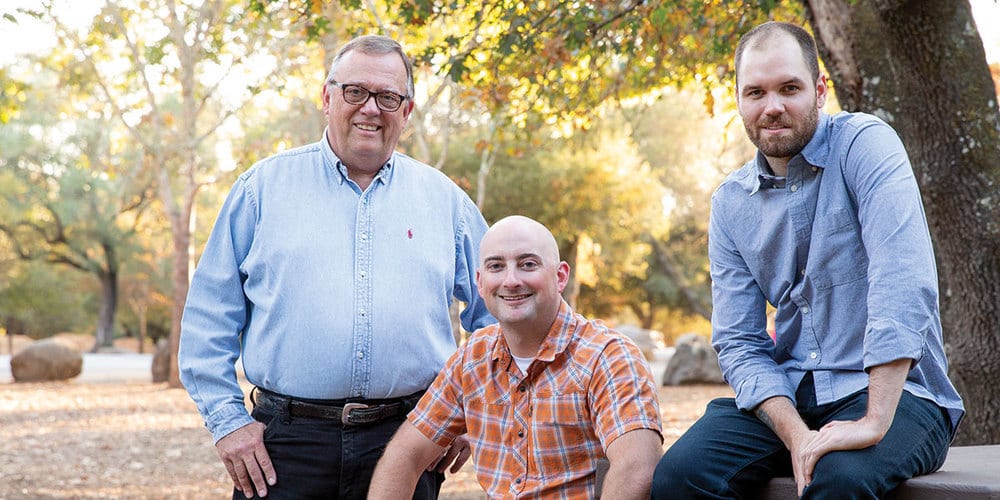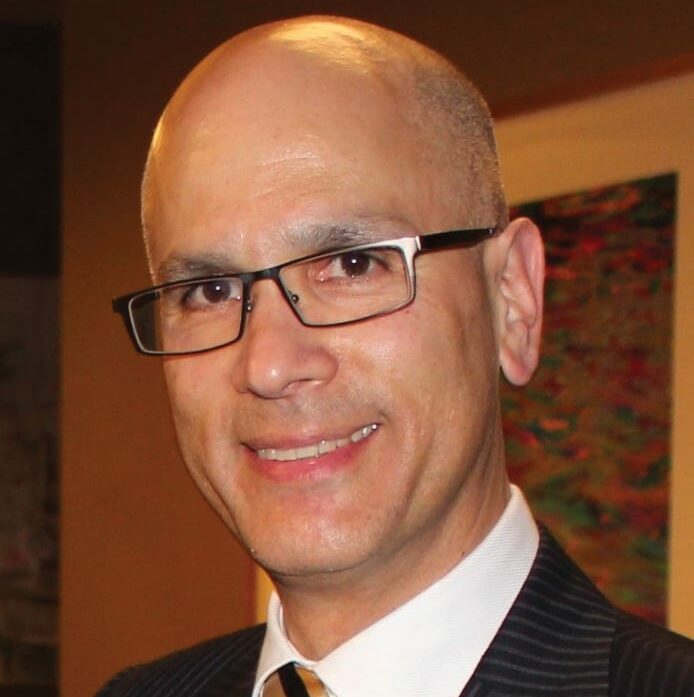
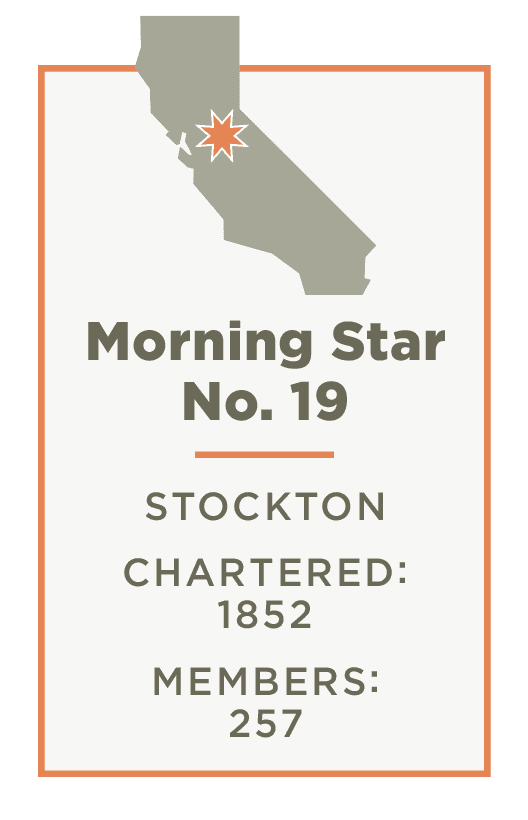 Amid the gleaming new high-rises and the century-old portside warehouses visible from the crosstown freeway, motorists passing through Stockton have for decades had their eye caught by the illuminated square and compass gracing the roof of Morning Star Lodge No. 19. A constant in the city since 1852, the lodge has experienced firsthand the peaks and valleys of Stockton’s fortunes. Today, both the lodge and city are again pointing upward.
Amid the gleaming new high-rises and the century-old portside warehouses visible from the crosstown freeway, motorists passing through Stockton have for decades had their eye caught by the illuminated square and compass gracing the roof of Morning Star Lodge No. 19. A constant in the city since 1852, the lodge has experienced firsthand the peaks and valleys of Stockton’s fortunes. Today, both the lodge and city are again pointing upward.
For years the city’s pollution, traffic, and crime rate propelled it to the top of Newsweek’s list of the most miserable places to live. You wouldn’t guess that, talking to the members of Morning Star No. 19. “We’ve always had the same underdog mentality as our city,” says Sonny Gotos, the 31-year-old master of the lodge. “We understand the value of hard work.” Indeed, it’s taken determination for the lodge to negotiate consolidation and declining membership in recent years, challenges that many lodges outside the biggest urban centers face. “But we’ve persevered through it all,” Gotos says.
So has their city. Over the past decade, Stockton has undergone a civic renaissance. A first-of-its-kind pilot study of universal basic income, an influx of green-tech industry, and a flurry of development along the waterfront have transformed the old port town from the collection of fleabag motels and skid rows described in Leonard Gardner’s Fat City into a revitalized hotbed of live-work lofts and art galleries. In 2020, the city topped a more encouraging list: U.S. News and World Report named it the most diverse in the nation.
Morning Star’s strength is a product of that diversity. Gotos, now in his third term as lodge master, points out that the lodge’s officers range from their early 30s to their early 70s and include white, Black, Latino, Filipino, and Vietnamese members. “Everybody benefits from diversity,” says John Baker, the lodge treasurer and a member since 1964. “It’s the differences that make us stronger.” Stronger and, as Gotos is quick to point out, “fatter, too, because all of us bring our cultural dishes for the brothers to enjoy.”
Now the lodge is striving to top a new list, one of its own making: friendliest in the state, a distinction somewhat at odds with Stockton’s rough-and-tumble reputation. “It seems silly to say, but we really do take it to heart,” Gotos says. As for what that means, he says, expect to be greeted with a hug. “You’ll never come to Morning Star and sit by yourself,” Baker says. “Within a minute, you’ll be deep in conversation.”
Pre-pandemic, members met every Friday evening at the historic hall, families included, for a night of pool, drinks, and socializing. “Some people value Masonry for its esoteric teachings, and while we don’t discount that, we place fellowship at the forefront of what we do here,” Gotos says. That hospitality extends beyond their own membership rolls: Anyone who takes note of the illuminated square and compass visible from Highway 4 should think of it as a beacon. “Every Mason is welcome at Morning Star,” Gotos says.
Above:
Lodge master Sonny Gotos atop the façade of Morning Star Lodge No. 19 in Stockton.
PHOTOGRAPHY CREDIT:
Winni Wintermeyer
More from this issue:

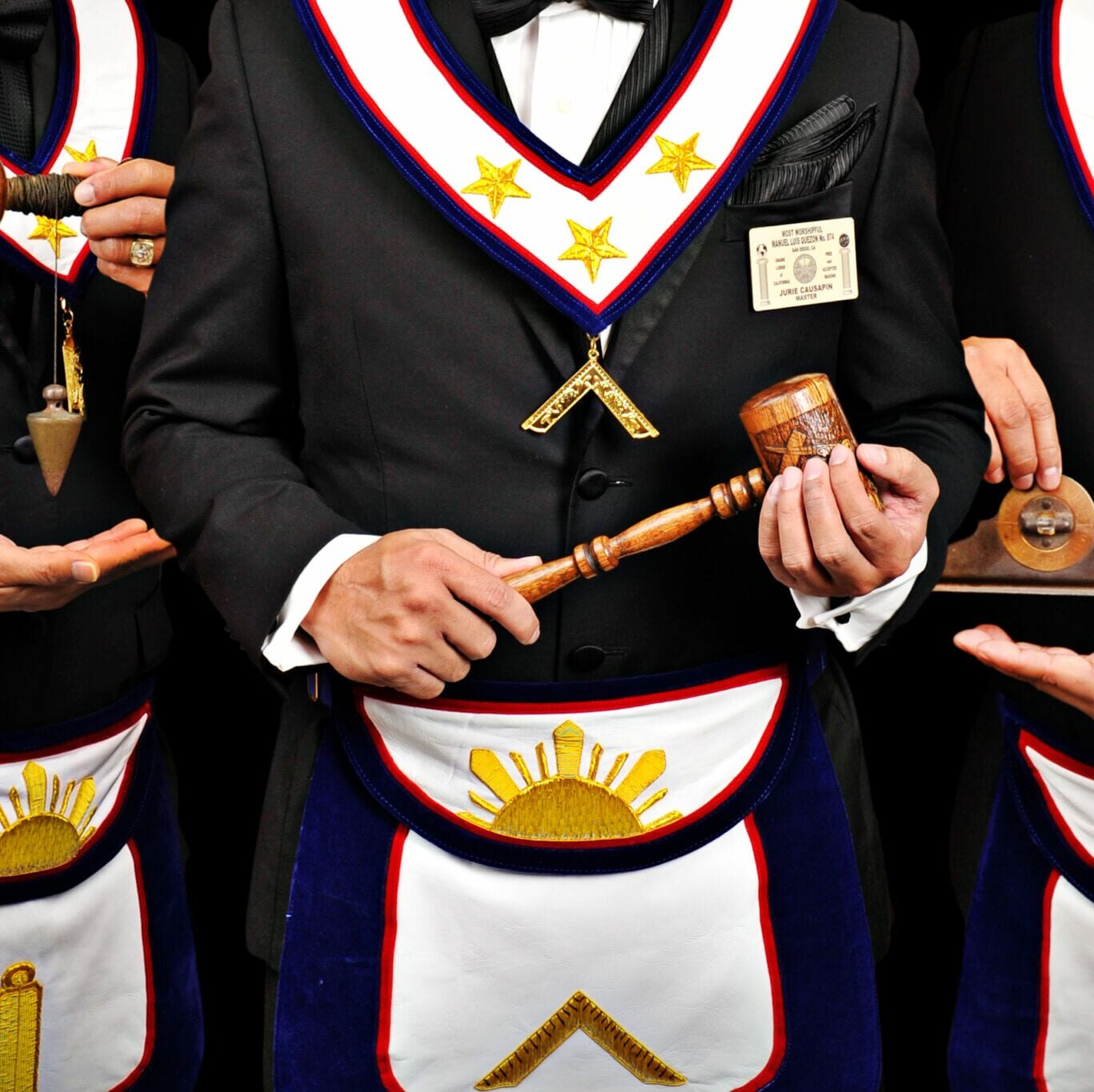
A Traveling Brotherhood
At the Manlalakbay Na Gurong Mason weekend, Filipino Freemasonry transforms into a can’t miss road show.
